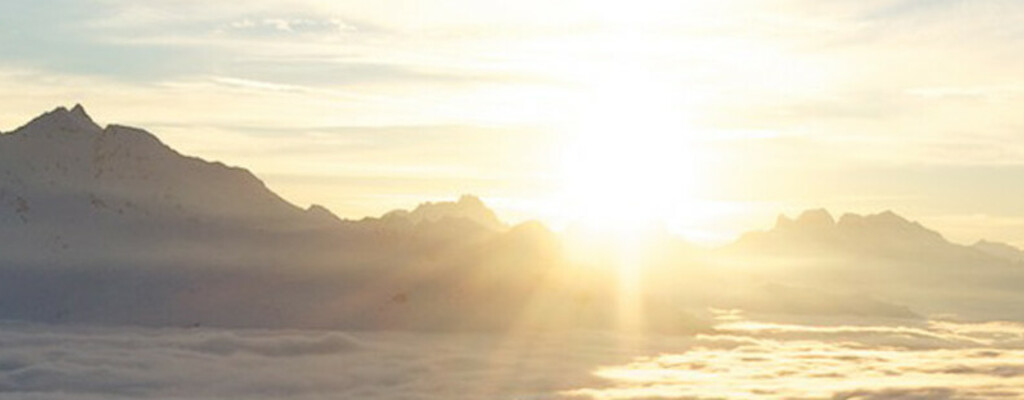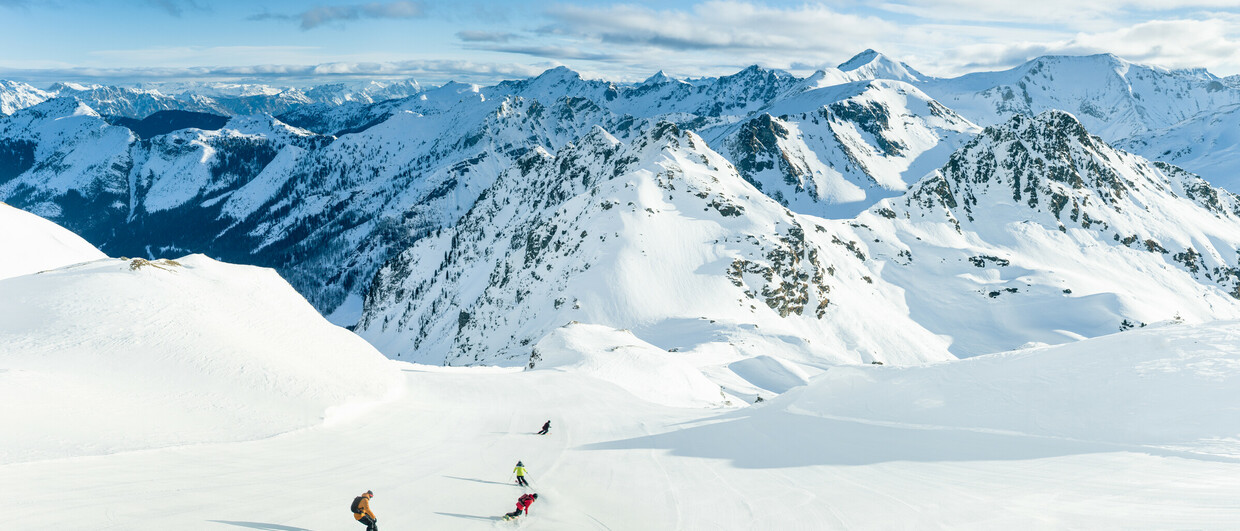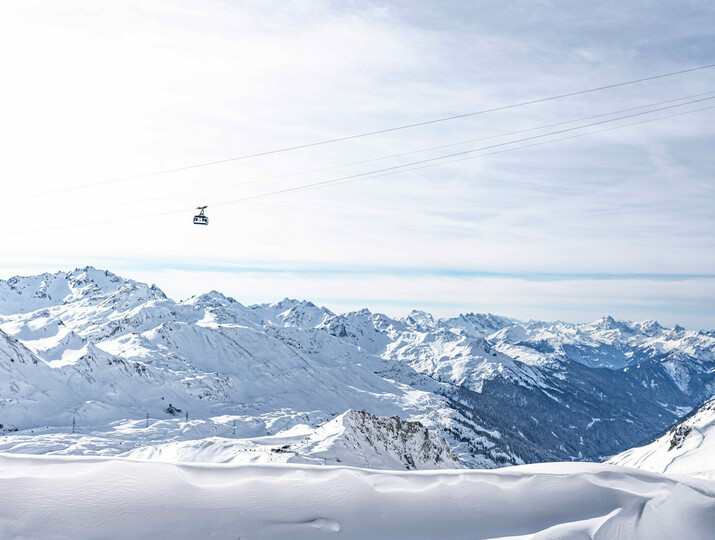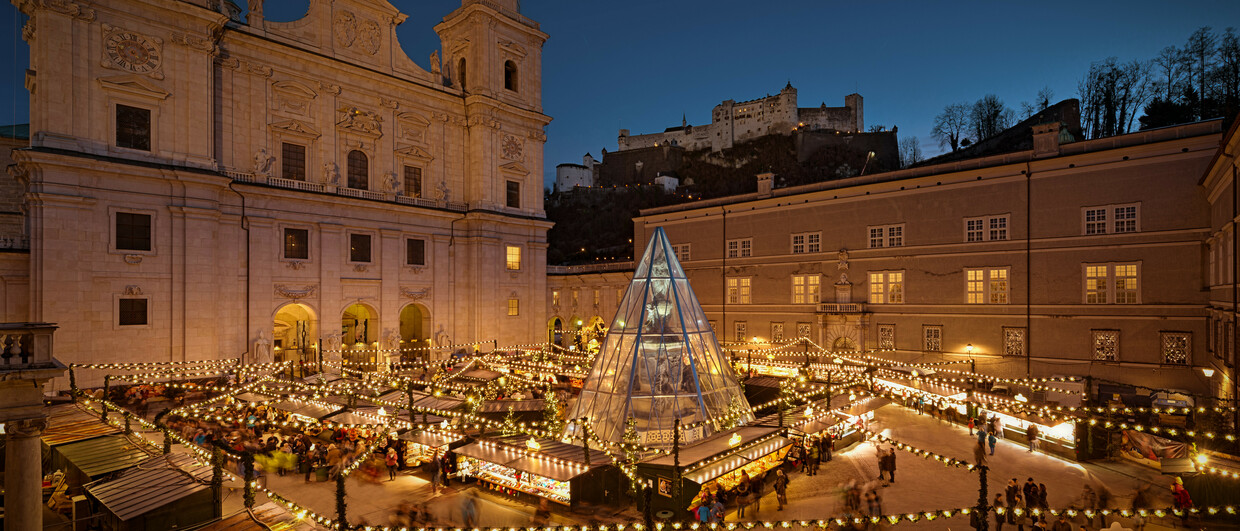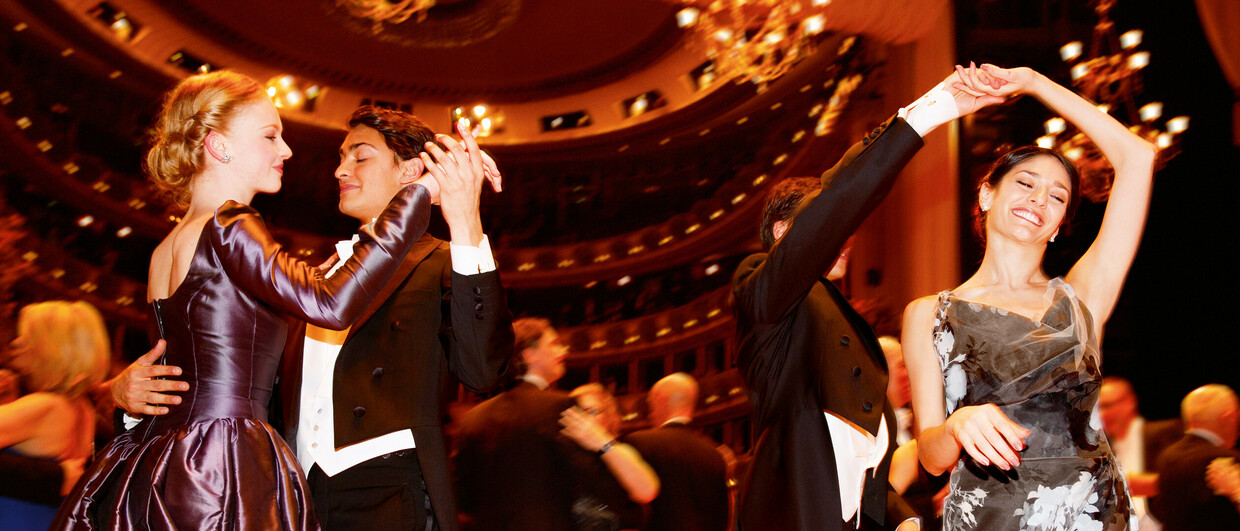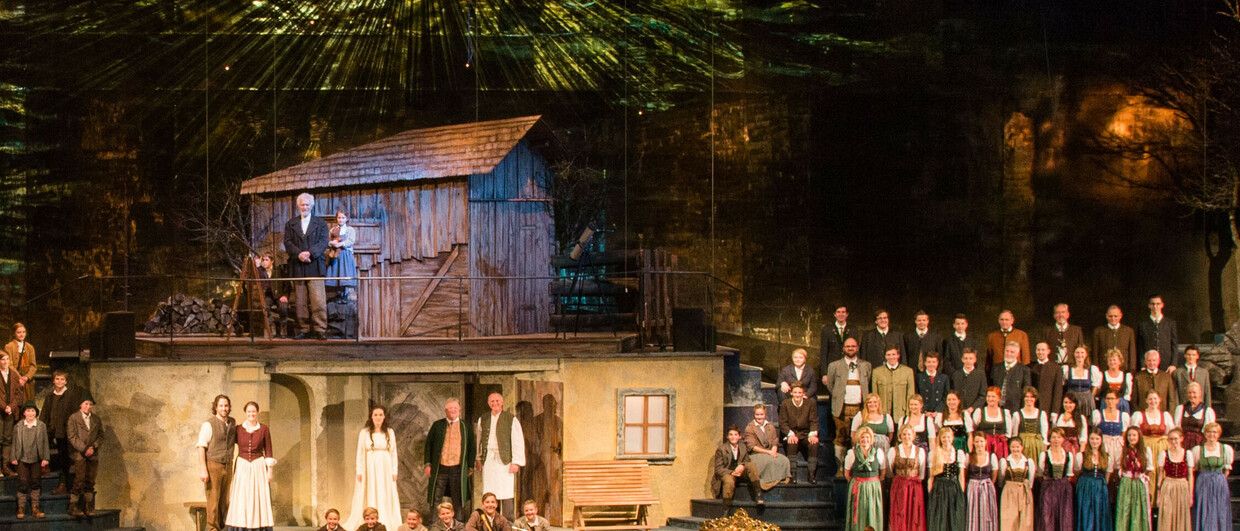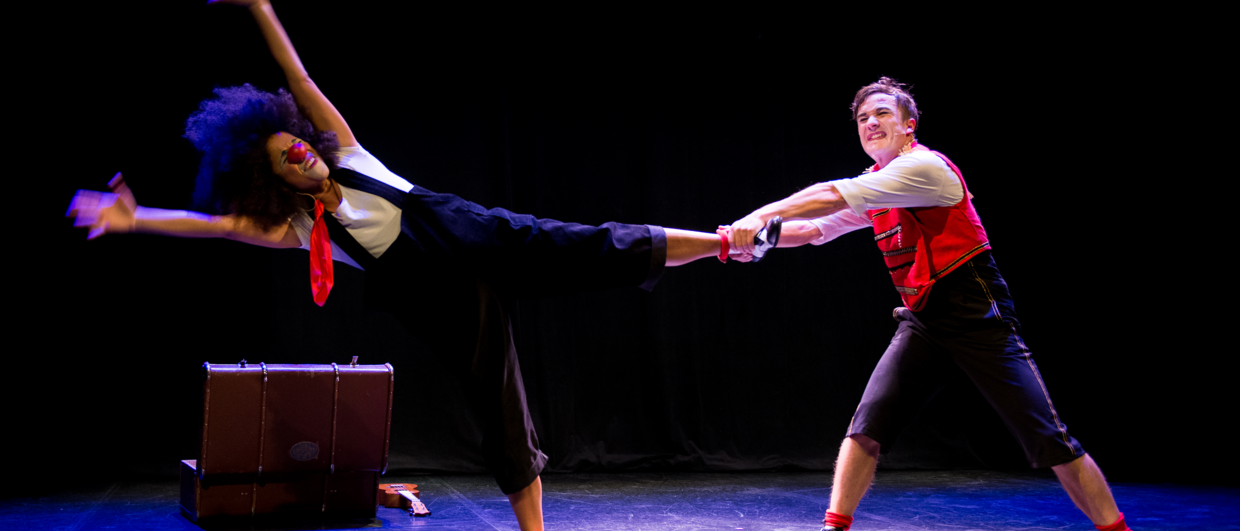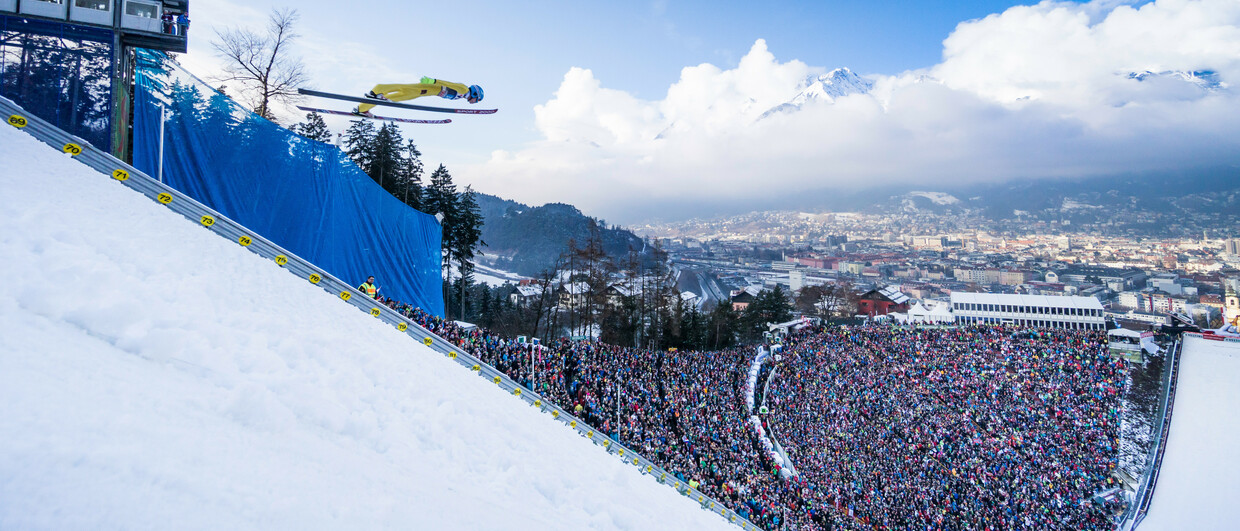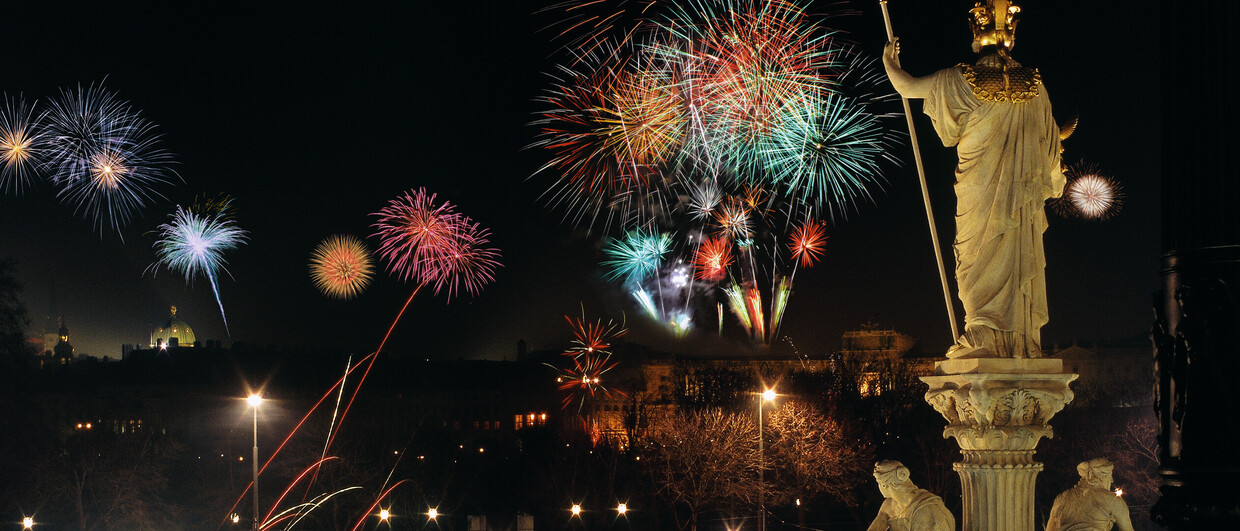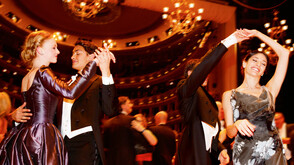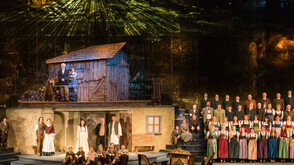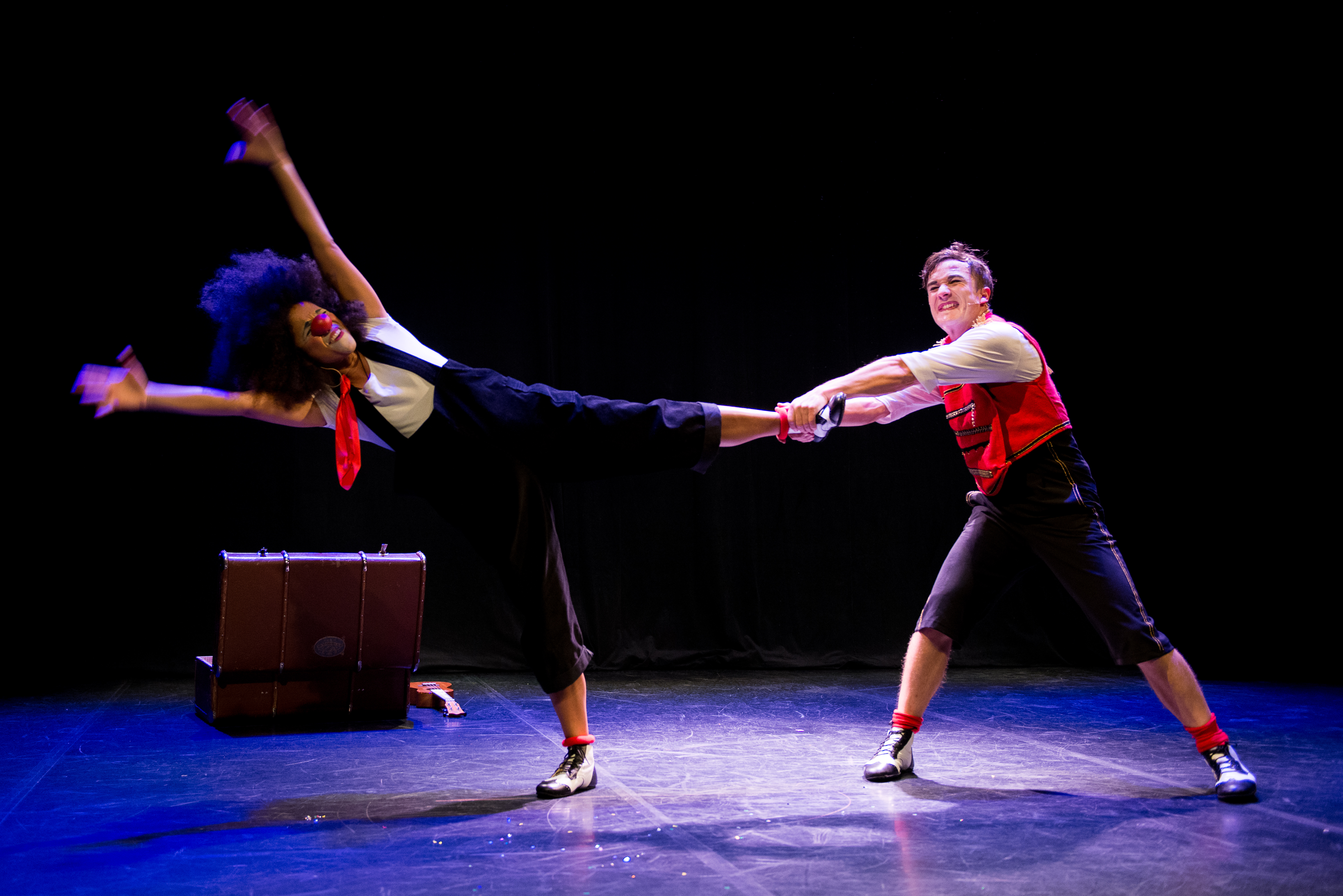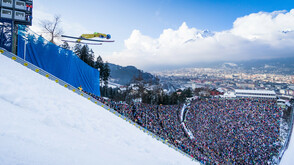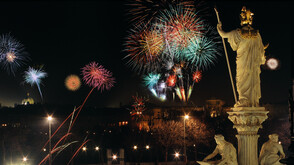What you need to know to plan a winter holiday in Austria
"I want to experience White Christmas, excellent slope conditions and a traditional, family run hotel - or even better a chalet!", sounds familiar but you don't know where to start? Scroll down and find all the inforamtion you need to satisfy your clients' needs.
Winter in Austria is offering endless options of must-do activities for clients, which makes it the perfect time to visit. With skiing being the national sport, Austria is especially sought after for its great skiing regions. However, from other winter outdoor adventures over a spa stay to beautiful Christmas markets, clients can enjoy the best of the season beyond the slopes!
Good to know!
Winter season | Mid-late November – beginning of March |
Snowfall | In general, the higher the altitude the more snow! Therefore, alpine regions with a high altitude usually have lower temperatures and significantly more snowfall than cities with a lower altitude.
However, snowfall can never be guranteed. Find Austria's most snow secure skiing resorts HERE. |
Average temperature | Around 0°C, can be up to -20 in high altitude & skiing regions |
Winter holidays in Austria | Your clients can experience less crowds in cities and on slopes and cheaper accommodation prices before and after local school holidays:
|
Christmas markets | Usually open every day from mid November (1st Advent Sunday) until Christmas Eve. In cities, some Markets stay open until the first week of January (e.g. in Salzburg and Vienna) |
Skiing - THE winter sport in Austria
With skiing known as the Austrian national sport, Austria is home to around 400 skiing resorts, most of which are located in the Western and South-Western parts of the country, in the provinces of Vorarlberg, Tirol, SalzburgerLand and Carinthia. The ski season commonly starts on the first weekend in December with big opening weekends and ends around Easter depending on snow conditions. However, glacier resorts and resorts with a high altitude open earlier and close later. If your clients are planning a skiing trip, they should be prepared for temperatures between below 0°C up to -20°C in some high-up regions. While winter sport equipment like skis, boots, poles and helmet can be rented directly at the resort, it is not common to rent ski wear.
What makes a skiing holidays in Austria unique?
As a country known for its hospitality, Austria stands out with its friendly, accommodating people and atmosphere: the famous Austrian 'Gemütlichkeit'! You won't find big hotel chains in Austria's resorts but instead lots of family owned and run properties (hotels, B'n'Bs, pensions, self-contained, apartments and chalets). Austria is a great choice for clients appreciating high quality service, as well as prefer to stay in a unique and cosy setting. The charm of the mountain huts is unmatched and traditional Austrian food is sereved to recharge the batteries after hitting the slopes.
All of Austria's resorts run state-of-the-art ski lifts and gondolas. The 3 easily recognised sloped categories (blue=beginner, red=intermediate, black=advanced) ensure all levels can enjoy their skiing adventure.
A GUIDE TO SKIING REGIONS LOVED BY AUSTRALIANS
Our favourite skiing resort: the Arlberg region
World famous as the "cradle of alpine skiing", the Arlberg region is a place where everything is first-rate: from amazing slopes in St. Anton and the historical village of St. Christoph, to the home-away-from-home feel of Stuben, the international lifestyle of Zürs, and the multiple-award-winning restaurants in Lech.
- Access to more than 300 km of marked ski runs and 87 lifts with just one lift pass - the Arlberg is Austria's largest connected ski resort.
- More than 200 km of off-piste skiing in deep powder snow
- More than 30 Gault Millau award-winning restaurants
- Easy access with direct trains from Vienna, Salzburg, innsbruck and Zurich
Everything you need to know about the Arlberg
Off-slope activities
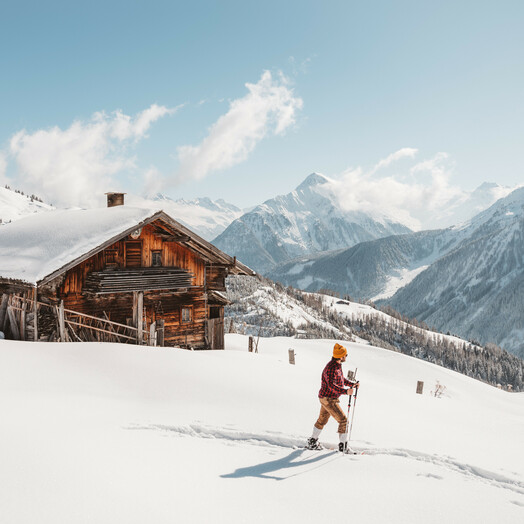
Snowshoe Hiking
Snowshoe hiking promises spectacular views off the beaten path while walking through fresh snow clinging to a mountain cliff. Great snowshoe trails can be found in almost every part of Austria. However, the Rauris Valley in Salzburg's countryside, with a trail passing by majestically soaring 3,000-metre peaks, is particularly impressive.
Winter Hiking
For clients who prefer it a bit less strenuous than snowshoe hiking, the countless, specially prepared trails at all altitudes across Austria lead through enchanting forests, over mountain pastures, or even into some of the highest mountain regions. The many inns and cafés along the hiking routes provide cosy spaces to rest. A great region for winter hiking is Seefeld in Tirol, just outside of Innsbruck.
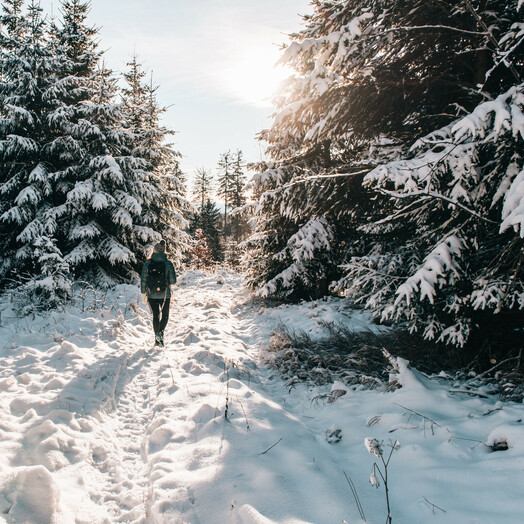
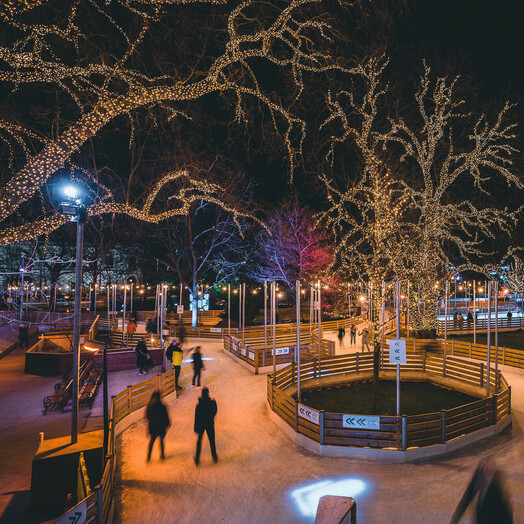
Ice Skating
When the temperatures begin to fall, some of Austria’s lakes become outdoor ice-skating arenas. Many lakes also offer other ice-based activities such as "ice stock" or ice hockey rinks. Especially the lakes in Salzkammergut or Tirol, which offer a very spectacular view, or Vienna’s Ice Dream on Town Hall Square, covering 91,000 sq of ice, are definitely worth a visit.
Horse-Drawn Sleigh Rides
A ride through the countryside on a horse-drawn sleigh snuggeled up with warm blankets is probably one of the most romantic ways to experience Austria’s snowy countryside. The best regions for horse-sleigh rides:
-
Kleinarl & Hinterglemm, SalzburgerLand
-
Kufstein, Tirol,
-
Bregenzerwald & Zug, Vorarlberg
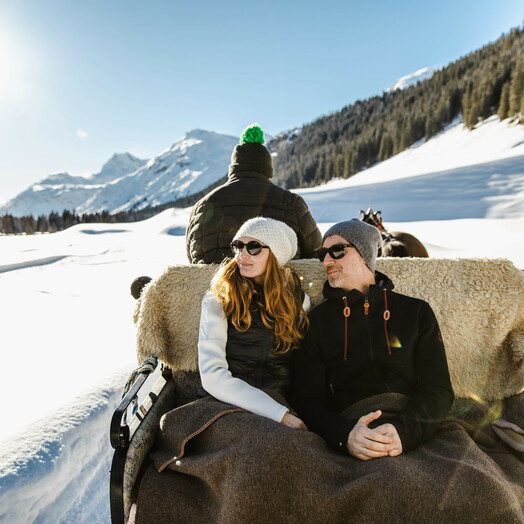
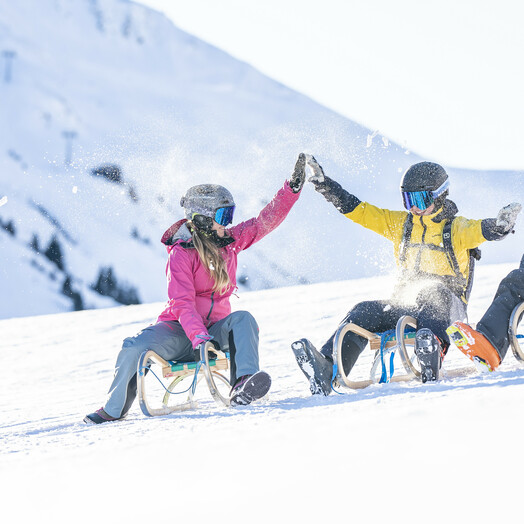
Tobogganing
A true winter classic during the day as well as at night, which can be found in almost every skiing resort. The most powerful floodlight system in Europe illuminates the toboggan run on the Hirschenkogel at Semmering and the World's Longest Floodlit Run can be found on the Wildkogel in Salzburg; an unbelievable 14 km and the entire length is lit at night.
Cross-Country Skiing
Cross country skiing is great way to experience Austria’s winter wonderland at one's own pace away from the busy slopes. Austria is home to a fantastic network of well-maintained trails for classical and skate skiing from December through to April. The 5 villages that make up the Olympiaregion Seefeld have been providing cross-country skiing facilities and conditions that are unparalleled anywhere else in Europe.
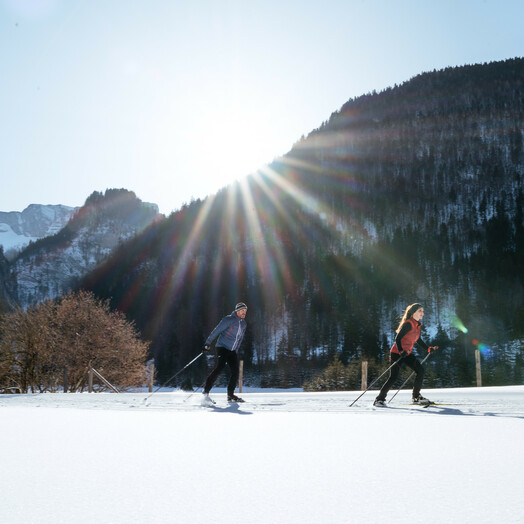
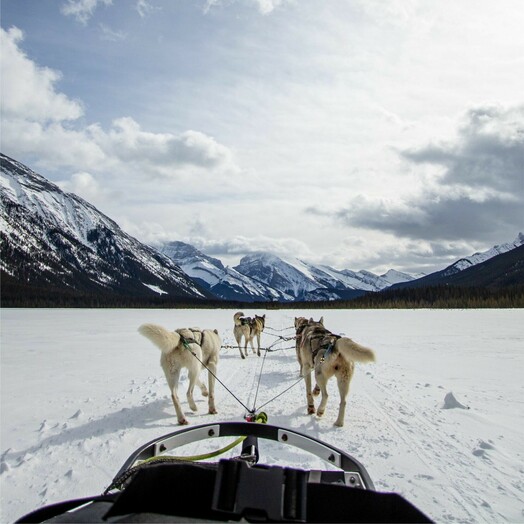
Dog Sledding
Standing at the back of the sled pulled by huskies, clients are able to experience the winter landscape in a unique way. During this Alaskan adventure one will learn about huskies and how to manoeuvring a sled, which can be put into practice straight away. Workshops are available in a variety of locations, such as the Waldviertel, Sportgastein (SalzburgerLand) and Brandnertal valley (Vorarlberg).
Spa & Wellness
Replete with natural hot springs, fresh Alpine air, sweeping mountainous views, and warming hospitality, Austria lends itself to a thriving spa scene. For clients who like to enjoy delicious gourmet menus and relax in outdoor pools, revigorating steam rooms, and quaint sauna cabins after an active day on the slopes, our top tips for spas should be checked out here.
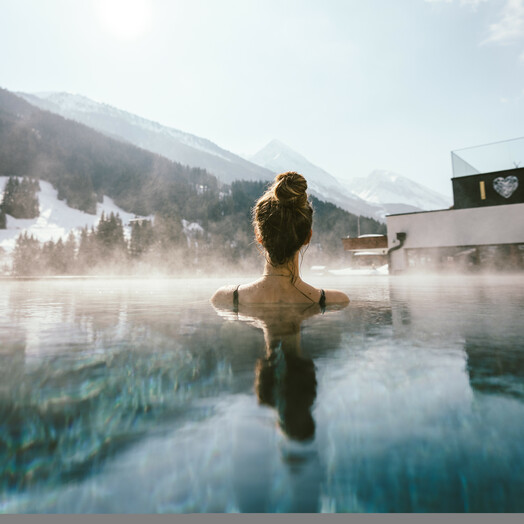
Christmas in Austria
The Advent period in Austria is also known as “the most peaceful time of the year.“ It is a time of old customs: Baking biscuits, putting up Christmas decorations, singing Christmas carols and many other much-loved traditions are shared by locals in the weeks leading up to Christmas - also called Advent. Advent means "arrival" in translation, referring to the birth of Christ. The Advent season of the Latin Church lasts 22 to 28 days and always includes four Sundays.
Read more about Austrian Christmas traditions
Christmas Markets
From mid-November until the end of the year, Austria is the place to explore romantic Christmas markets. Glistening lights, seasonal treats and snow-covered roofs make for a magical experience in Austria's towns. Guests can connect with locals, buy handcrafted souvenirs and taste regional specialities.
Christmas Markets in major cities are open every day and beyond Christmas Eve (make sure you check the opening dates as they vary), whereas some regional markets in towns and villages are only open on weekends and close on 24 December. Vienna is also home to New Year’s Markets (so called Silvestermarkt) open from 26 December until early January.
Austrias Christmas Markets at a glance
Our favourite markets
Vienna
The Christmas markets in Vienna truly are an age-old tradition. The forerunners of the present-day events date back to the Middle Ages when in 1298 Albrecht I granted Vienna's citizens the privilege of holding a December Market or "Krippenmarkt". Since then, the character and prevalence of these markets has changed considerably. Nowadays, over 20 official Advent Markets sell a vast array of seasonal gifts and treats. The Vienna Christmas World in front of the City Hall is an unforgettable highlight for those eager to get into the spirit of the season. The unique backdrop gives this market a charm of its own. But the markets in front of Schönbrunn Palace and Belvedere Palace enchant with their imperial backdrop. Christmas Market on Spittelberg enchants visitors with romantic lights and numerous handicraft stalls in the idyllic alleyways.
Salzburg
Salzburg's Christmas Market, mentioned as far back as the 15th century, is located at the foot of the Hohensalzburg fortress and around the venerable Cathedral of Salzburg. An extensive programme of events such as choral singing in front of the cathedral, "Turmblasen" (wind instruments) on Residenz Square and nativity exhibits in the Residenz courtyard await visitors. Advent Magic in the courtyard of Hellbrunn Palace, with its oversized Advent calendar in the windows of the palace, romantic booths and an exciting entertainment programme is a popular Christmas market for locals.
Innsbruck
The Christmas markets in Innsbruck are counted amongst some of the most beautiful and romantic in the entire Alpine region. Every Advent, in the historic part of Innsbruck, in front of the Golden Roof and surrounded by beautifully preserved medieval facades the Old Town Christmas Market comes to life. Imagine the lights of a Christmas tree rivalling the glistening tiles of the Golden Roof and the aroma of freshly made “Kiachln” (piping hot doughnuts laced with Sauerkraut). At the Panorama Christmas Market on Hungerburg, at the top of the funicular railway) visitors can not only enjoy breathtaking views of the city but will also find plenty of culinary delights and a wide range of local crafts.
City Highlights & Events in Wintertime
- Ball season: One of the many winter highlights in the cities is the ball season. Balls do not only happen in Vienna but all over the country. More than 800 balls invite locals and visitors alike to celebrate the ‘fifth season’ between 11 November and Mardi Gras. For example the ‘Opera Redoute’ in Graz (27.1.2024) or the rustic ‘Edelweiss Ball’ in Salzburg are just as glamours as the ones in the capital of the Waltz known for the famous ‘Vienna Opera Ball’ (8. Februar 2024). If you plan a winter holiday for your clients make sure you check out the event calendar if there are any balls they could attend. Find out more about the Ball Season HERE.
- Advent concerts: During the Advent time, which comprises the four weeks before Christmas, several Advent concerts like the Salzburg Advent Singing in Salzburg city or the Wilten Boys’ Choir Advent Concert in Innsbruck and across other locations in Tirol are hosted, which is a great way to experience Austrian Christmas time traditions.
- Cultural Events: In the city of Salzburg, two great cultural events are organized in winter, which should not be missed: the Winterfest Salzburg (29.11.2023 - 07.01.2024), the biggest festival for modern circus artistry in the German-speaking regions, and the Mozart Week Salzburg (25.01. 04.02.2024), known as Salzburg's festival for classical music in winter staged around the time of classical music composer Wolfgang Amadeus Mozart's birthday.
-
Skiing events: In Winter clients can watch and cheer for professional skiiers competing in Austria's ski regions against each other. Among others the most famous events include:
-
Four Hills Tournament in Innsbruck (3./4.01.24)
-
Nightrace in Schladming (23.01.24)
-
The Hahnenkamm Races in Kitzbühel (15. - 21.01.24)
-
The White Thrill in St. Anton am Arlberg (22.04.23)
-
Spring Blanc: in Ischgl (30.03. - 01.05.2023)
-
White Pearl Mountain Days in Saalbach (22. - 31.03. 2024)
-
-
New Years Eve: All major cities, such as Innsbruck, Graz and Salzburg, host great celebrations for New Year's Eve. However, in the capital the biggest and most spectacular events take place:
-
New Year's Concert of the Vienna Philharmonic
-
the Silvestergala at City Hall
-
The Silvesterpfad "New Year's Path"
-
the Viennese State Opera and the Volksoper host gala performances of Johann Strauss' "Die Fledermaus" ("The Bat").
-

